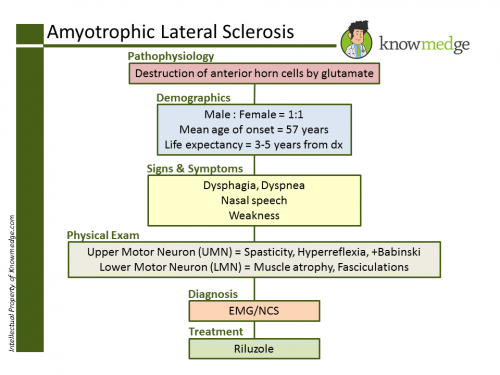#IceBucketChallenge contributes to discovery of NEK1 gene linked to ALS
All the ice water bucket dumping 2 summers ago has led to the harvesting of a key gene discovery in the fight against amyotrophic lateral sclerosis (ALS). Multiple media outlets reported on this development this week, including Daily Mail, The Washington Post, and The Guardian. While rare, this condition does appear on the medical board examinations, like USMLE, ABIM, ABFM and PANCE.
Here’s our earlier #IceBucketChallenge post by @SunirMD with an updated (in bold) review of ALS in light of this latest research.
If you’re like millions of other Americans and folks around the world, you took the #IceBucketChallenge in the summer of 2014. Indeed, over $115 million (of which $77 million went towards research efforts) was donated to the cause that went viral on social media. The beneficiary of this campaign was the A.L.S. Association, a nonprofit aimed at funding research for enhancing treatment of amyotrophic lateral sclerosis (ALS).
Here’s what you need to know about ALS (also known as Lou Gehrig’s disease) for the USMLE Step, ABIM certification and Maintenance of Certification (MOC) exams.
 OVERVIEW
One of the unique characteristics of ALS is that it affects both the upper and the lower motor neurons. No other condition that you need to know for the boards has this hallmark. The pathophysiology of the condition is believed to be via destruction of anterior horn cells by glutamate. Both men and women are affected at about the same frequency.
Less than 10% of cases are familial. One potential genetic cause is the copper-zinc superoxide dismutase (SOD1) gene which is found on chromosome 21 and is transmitted in an autosomal dominant fashion.
The mean age of onset is 57 years. Life expectancy is between 3 and 5 years from the time of diagnosis. Respiratory conditions like aspiration pneumonia are the most common cause of death in affected patients.
SIGNS AND SYMPTOMS
OVERVIEW
One of the unique characteristics of ALS is that it affects both the upper and the lower motor neurons. No other condition that you need to know for the boards has this hallmark. The pathophysiology of the condition is believed to be via destruction of anterior horn cells by glutamate. Both men and women are affected at about the same frequency.
Less than 10% of cases are familial. One potential genetic cause is the copper-zinc superoxide dismutase (SOD1) gene which is found on chromosome 21 and is transmitted in an autosomal dominant fashion.
The mean age of onset is 57 years. Life expectancy is between 3 and 5 years from the time of diagnosis. Respiratory conditions like aspiration pneumonia are the most common cause of death in affected patients.
SIGNS AND SYMPTOMS
• Dysphagia
• Nasal speech
• Neck extensor muscle weakness causing head drop
• Dyspnea
• Generalized weakness
• Some patients can develop fronto-temporal dementia
• Sensation is NOT compromised
Physical exam findings fit both the upper motor neuron (UMN) and lower motor neuron (LMN) signs:• UMN: Spasticity, hyperreflexia and a positive Babinski’s sign
• LMN: Atrophy of muscles, fasciculations
DIAGNOSIS The diagnosis of ALS is made by obtaining an electromyogram (EMG) and nerve conduction study (NCS) that shows diffuse UMN and LMN injury, not conforming to nerve root distribution. No abnormalities on cerebrospinal fluid analysis or cervical spine imaging are seen in ALS. TREATMENT Part of the appeal of donating to the fight against ALS was the paucity of treatment options. No cure exists for this horrible disease. Currently, the only FDA-approved medication for ALS is riluzole, a glutamate antagonist. It prolongs survival by about three months as studied in clinical trials. But, now thanks to a portion of the $77 million raised towards A.L.S. research, a global gene sequencing effort (Project MinE, a University of Massachusetts Medical School Project) has identified a new ALS gene, called NEK1. This is significant because it provides a potential target which is is needed for a cure. Other current treatment options are strictly supportive care:• Percutaneous endoscopic gastrostomy (PEG) tube improves quality of life by assuring proper caloric intake, hydration, and an alternative method of administering medications.
• BiPAP therapy can be initiated in patients who have respiratory compromise.








